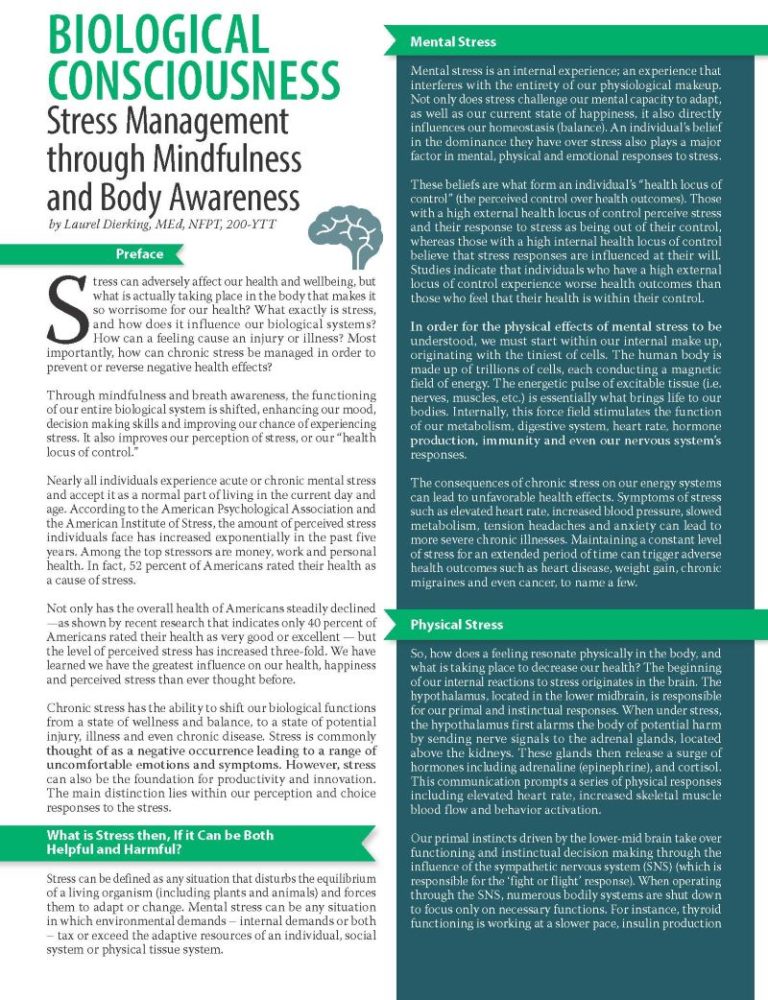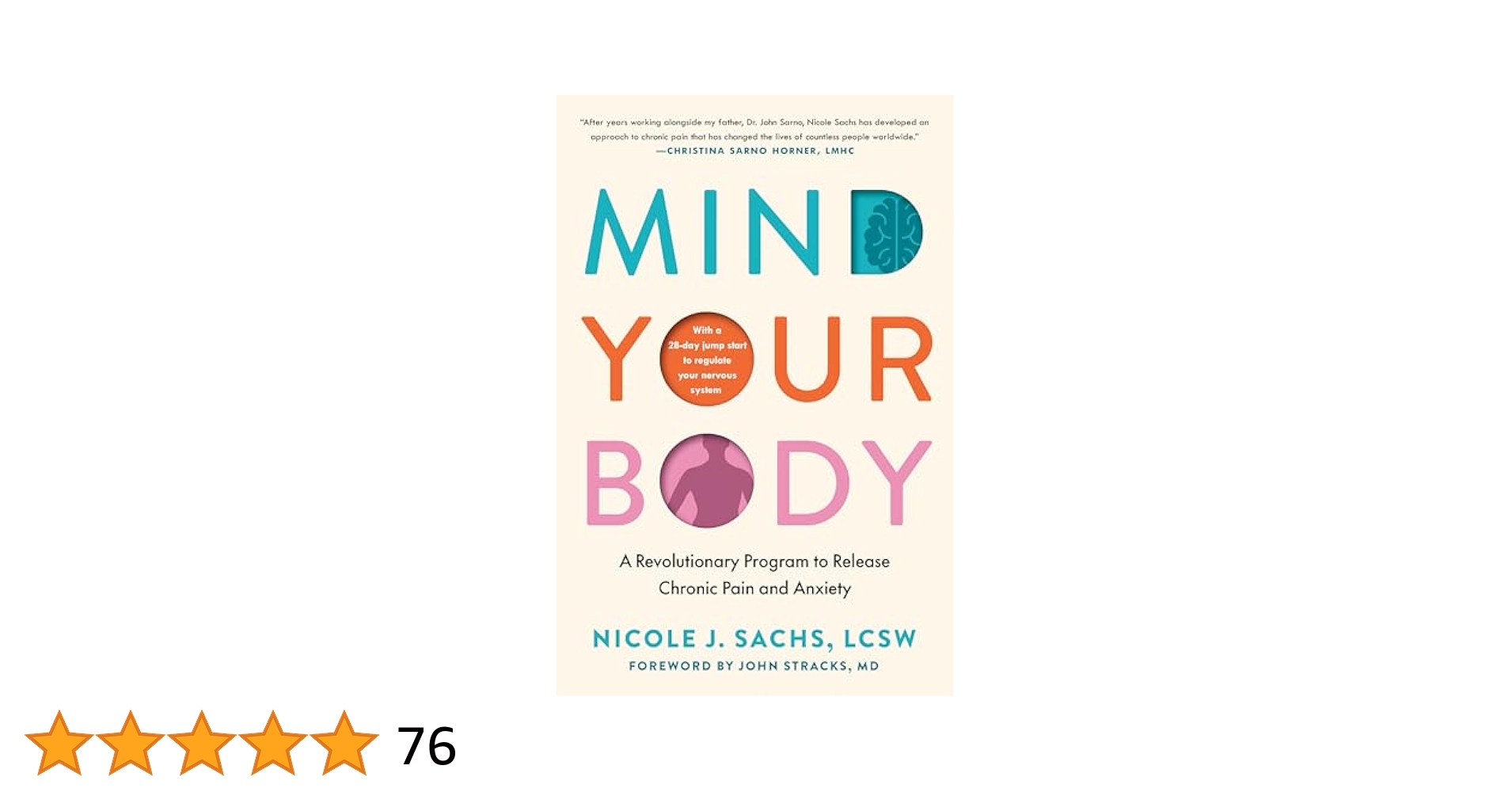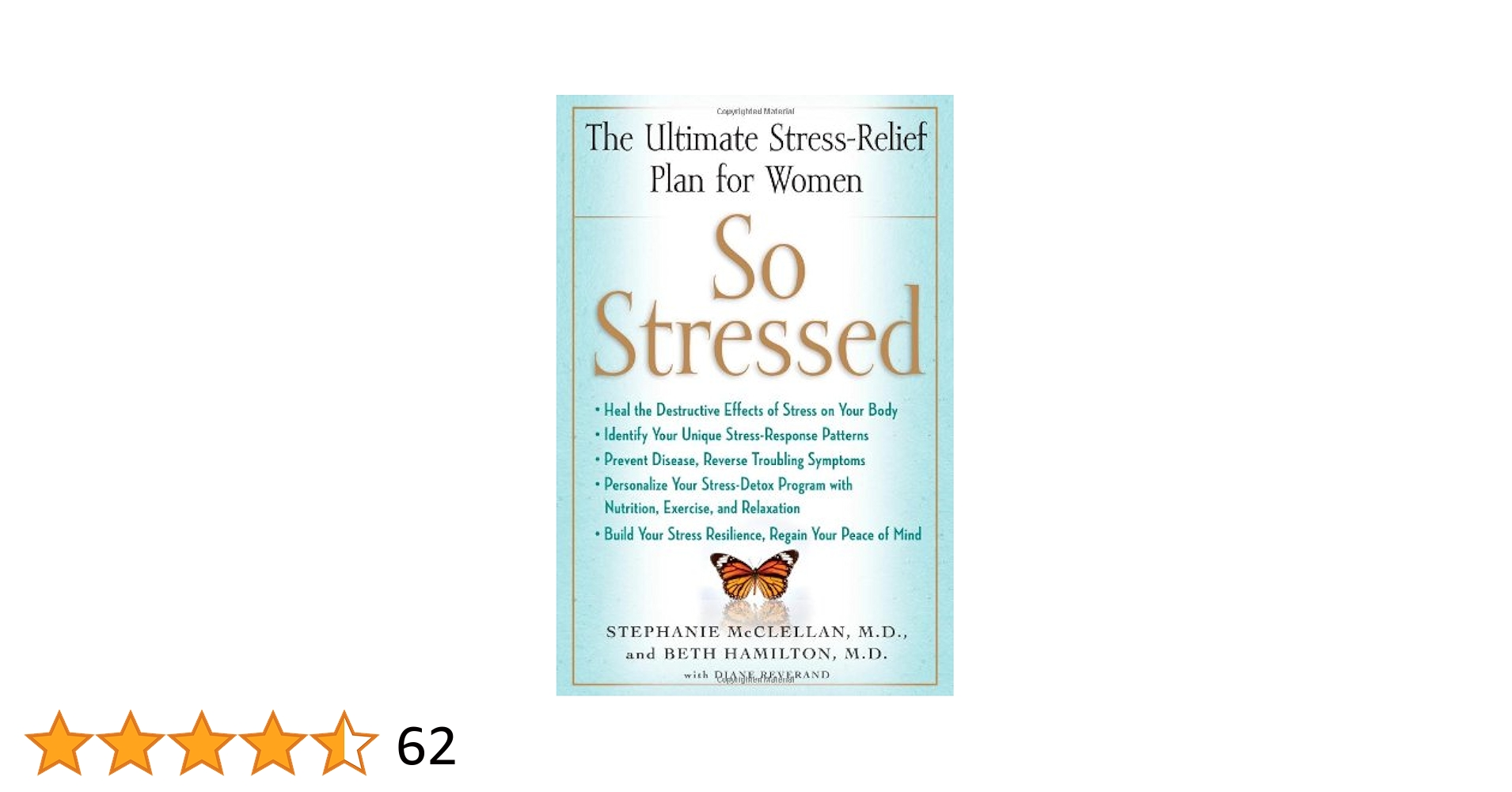Unlocking the Body's Wisdom: A Proven Approach to Stress Relief
Understanding Stress and Its Effects on the Body
Definition of Stress
Stress can be defined as the body's response to challenges or demands, both positive and negative. For instance, while excitement over a new job can motivate someone, the pressure to perform can also induce stress.
Physical and Psychological Effects of Stress
The effects of stress can manifest both physically and psychologically. Individuals might experience:
- Physical symptoms: headaches, fatigue, or gastrointestinal issues.
- Psychological symptoms: anxiety, mood swings, or difficulty concentrating.
An example is Sarah, a working mother, who often felt overwhelmed balancing work and family duties—leading to sleepless nights.
Importance of Managing Stress Effectively
Managing stress is crucial for maintaining overall health. Effective stress management can lead to:
- Enhanced productivity.
- Improved relationships.
- Reduced risk of chronic illnesses.
Finding balance allows individuals to navigate life's challenges more effectively, leading to a fulfilling life.
 Source: www.obesityaction.org
Source: www.obesityaction.org
The Body's Response to Stress
Fight or Flight Response
When faced with stress, the body activates the "fight or flight" response, a survival mechanism developed over centuries. This reaction prepares individuals to either confront the danger or escape from it. Imagine being startled by a barking dog; your heart races, and your senses heighten—this is your body gearing up to respond.
Role of Hormones like Cortisol and Adrenaline
Central to this response are hormones like cortisol and adrenaline. These hormones have specific roles:
- Cortisol: Often called the stress hormone, it raises blood sugar levels and enhances brain function.
- Adrenaline: Instantly increases heart rate and energy, making physical action possible.
While these hormones are beneficial in short bursts, prolonged stress can lead to health issues. For example, John, who experiences constant work-related stress, noticed increased anxiety and health problems—all linked to excessive cortisol levels. Understanding this response is essential for managing stress in daily life.
 Source: m.media-amazon.com
Source: m.media-amazon.com
Mind-Body Connection in Stress Relief
Impact of Mind on Body and Vice Versa
The mind and body are intricately linked; what happens in one can significantly impact the other. Stress thoughts can create physical tension, while physical discomfort can lead to mental distress. For instance, Lisa noticed that her anxiety during exam season often manifested as stomach aches, revealing how closely interconnected our experiences are.
Techniques like Meditation and Deep Breathing for Stress Relief
To combat this cycle, techniques like meditation and deep breathing can be incredibly effective. These practices allow individuals to:
- Clear their minds: Reducing anxiety.
- Lower heart rates: Promoting relaxation.
Taking just a few minutes each day to focus on breathing or practice mindfulness can yield profound results, helping to reestablish balance.
Benefits of Mind-Body Practices
Engaging in mind-body practices leads to numerous benefits, including:
- Decreased stress levels.
- Improved emotional regulation.
- Enhanced overall well-being.
By incorporating these techniques, individuals like Lisa can learn to manage stress better, fostering a harmonious balance between their mental and physical health.
 Source: images-na.ssl-images-amazon.com
Source: images-na.ssl-images-amazon.com
Holistic Approaches to Stress Relief
Integrative Medicine and Holistic Healing
Expanding on the mind-body connection, holistic approaches to stress relief focus on treating the whole person. Integrative medicine combines traditional practices with alternative therapies. For example, Mark found immense relief by incorporating yoga and acupuncture into his routine, which significantly improved his overall wellness.
Nutrition and Exercise as Stress Management Tools
Nutrition and exercise also play pivotal roles in managing stress. A balanced diet helps fuel the body and mind, while regular physical activity releases endorphins, which are natural mood lifters. Consider these strategies:
- Eat whole foods: Prioritize fruits, vegetables, and lean proteins for better mental clarity.
- Stay active: Aim for at least 30 minutes of moderate exercise daily.
These small adjustments can collectively create a powerful foundation for stress management.
Alternative Therapies like Acupuncture and Massage
Alternative therapies, such as acupuncture and massage, offer additional relief. Acupuncture targets specific body points, promoting relaxation, while massage therapy releases tension. For instance, after experiencing severe stress, Emily found that a monthly massage was not only soothing but also essential for maintaining her mental health. Exploring these holistic approaches can provide individuals with a comprehensive toolkit for managing stress effectively.
 Source: m.media-amazon.com
Source: m.media-amazon.com
Tools and Resources for Stress Relief
Stress-Relief Apps and Websites
Building on a holistic approach, various tools and resources can aid in stress management. Stress-relief apps and websites offer quick access to techniques and exercises. For example, apps like Headspace and Calm provide guided meditations and breathing exercises that can be used anytime. Sarah found that incorporating these tools into her daily routine greatly reduced her anxiety levels.
Professional Support: Therapists and Counselors
Seeking professional support is another vital resource. Therapists and counselors can provide personalized strategies tailored to individual needs. Engaging with professionals not only helps process emotions but also offers a safe space for expressing concerns. Mike, for instance, benefited greatly from cognitive-behavioral therapy, which taught him effective coping strategies for managing stress.
Importance of Self-Care in Stress Management
Lastly, emphasizing self-care is crucial in any stress relief plan. Simple practices like enjoying a leisurely walk, reading a book, or spending time with loved ones can rejuvenate the mind and spirit. Remember, prioritizing self-care allows individuals to recharge, eventually leading to better overall health and resilience against stress. A consistent self-care routine can be transformative, enhancing one’s ability to cope with everyday challenges.
 Source: m.media-amazon.com
Source: m.media-amazon.com
Implementing a Stress Relief Plan
Identifying Triggers and Stressors
Building on the importance of self-care, implementing a structured stress relief plan can truly change one’s life. The first step involves identifying personal triggers and stressors. These could range from work deadlines to family expectations. For example, Jane realized that her late-night emails contributed significantly to her stress, prompting her to set stricter boundaries.
Creating a Personalized Stress Management Plan
Once triggers are identified, it's essential to create a personalized stress management plan. This plan should encompass various techniques tailored to individual needs, such as:
- Mindfulness practices: Daily meditation sessions or yoga.
- Physical activities: Incorporating walks or gym sessions into the schedule.
- Relaxation techniques: Setting aside time for hobbies or leisure activities.
Mark found that by structuring his week around these activities, he significantly reduced his stress levels.
Monitoring Progress and Adjusting Strategies
Lastly, continuous monitoring of progress is vital. Regularly reflecting on what works best allows for adjustments in strategies. Keeping a journal can be an effective way to track feelings and reactions over time. If something isn’t working, don’t hesitate to modify the plan. For instance, Lisa discovered that morning meditation worked better than evening sessions for her. Adapting and evolving the plan ensures that stress relief remains effective and supportive in the long run.
 Source: images-na.ssl-images-amazon.com
Source: images-na.ssl-images-amazon.com
Benefits of Unlocking the Body's Wisdom for Stress Relief
Improved Physical Health
As we continue to explore stress management, one major benefit of unlocking the body’s wisdom is improved physical health. When stress is managed effectively, the body can function optimally. Individuals often experience:
- Lower blood pressure: A reduction in stress can result in healthier heart function.
- Better immune response: Less stress leads to fewer illnesses and faster recovery.
For instance, Tom found that after implementing stress relief techniques, he rarely caught colds.
Enhanced Emotional Well-Being
Unlocking the body’s wisdom also enhances emotional well-being. Individuals become more in tune with their feelings and can address them proactively. By practicing mindfulness or journaling, one can cultivate a positive mindset. Sarah, for example, noticed that embracing her emotions through writing helped her navigate daily challenges more smoothly, leading to a deeper sense of peace.
Long-Term Strategies for Stress Prevention and Management
Finally, incorporating stress relief into daily life fosters long-term strategies for stress prevention. By establishing routines that prioritize self-care, individuals can build resilience. Consider:
- Regular exercise: Engaging in physical activity releases endorphins, combating stress naturally.
- Mindfulness practices: Incorporating breathing exercises reduces anxiety.
By embracing these practices, individuals create a sustainable foundation for managing stress effectively, ensuring they remain not only resilient but also empowered in their daily lives.
 Source: m.media-amazon.com
Source: m.media-amazon.com
Conclusion and Key Takeaways
Recap of Effective Stress Relief Techniques
As we wrap up our exploration of stress relief, it’s important to recap effective techniques that can make a difference. These include mindfulness practices, physical activities, and engaging in creative hobbies. Integrating tools like stress-relief apps or professional support can further enhance one’s approach to managing stress. Remember, the key is finding what resonates with you personally.
Encouragement for Embracing Mind-Body Connection
Embracing the mind-body connection is crucial in navigating life’s challenges. Acknowledging feelings and their physical manifestations helps cultivate deeper awareness. By paying attention to how emotions manifest in the body, individuals can learn to respond rather than react. For instance, recognizing tension in the shoulders can prompt a quick stretch or deep breathing, fostering resilience.
Summary of the Impact of Holistic Approaches
Finally, the impact of holistic approaches to stress relief cannot be overstated. By taking care of both the mind and body, individuals unlock pathways to enhanced well-being and improved physical health. Connecting with oneself through a combination of practices can lead to lasting change and a happier, healthier life. Embrace these tools and strategies as you embark on your journey towards stress relief and overall wellness.